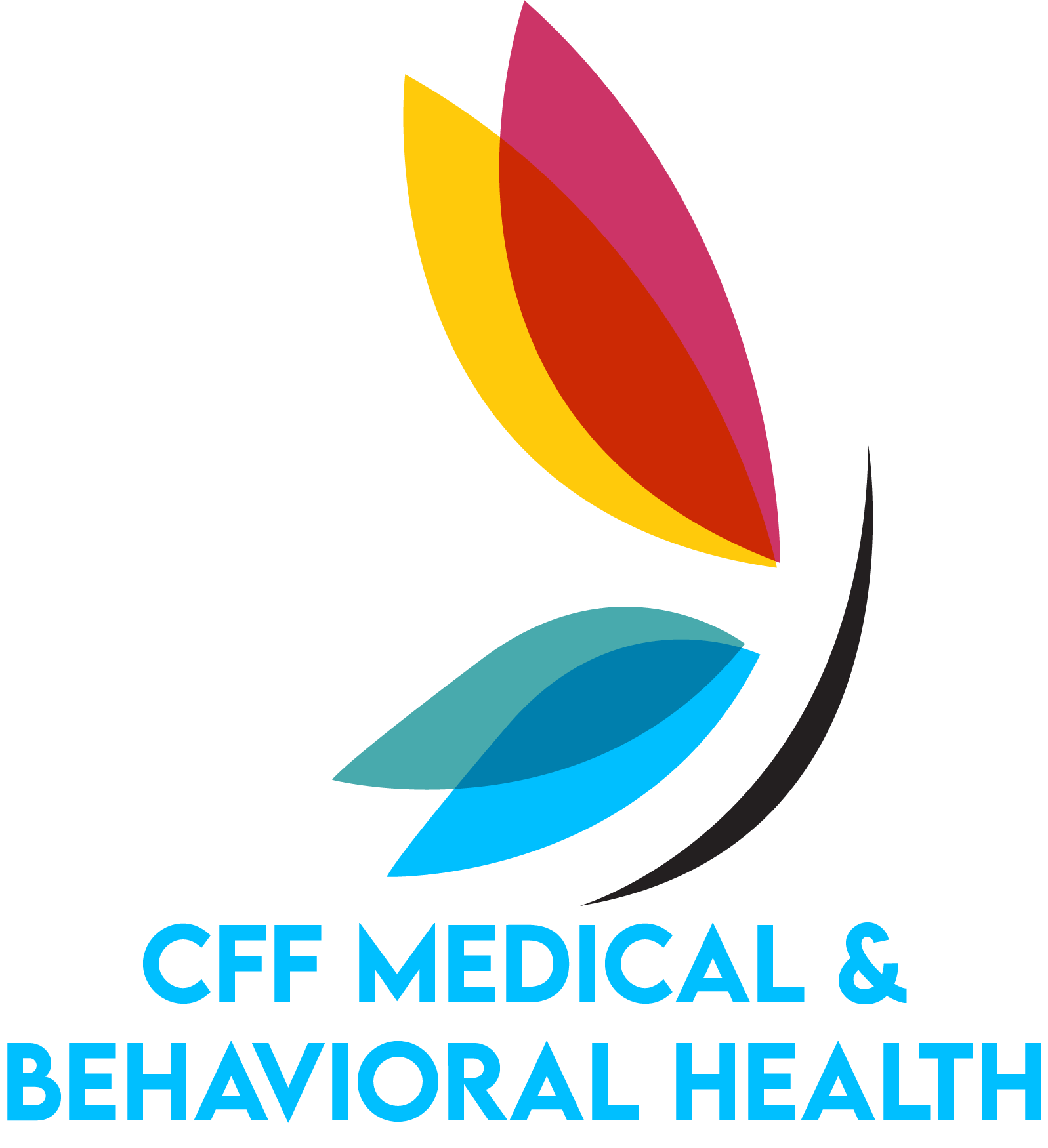Understanding Holistic Mental Health
What Are Holistic Approaches to Mental Health?
Holistic approaches to mental health focus on treating the whole person rather than just the symptoms of a mental health condition. This means considering the physical, emotional, social, and spiritual aspects of an individual’s well-being. By addressing these interconnected areas, we aim to promote overall health and balance.
Holistic mental health care often incorporates a variety of alternative therapies that complement traditional treatments. These may include mindfulness and meditation, yoga, art and music therapy, and nutritional support. The goal is to create a comprehensive treatment plan that supports all facets of an individual’s life.
Benefits of Holistic Mental Health Care
Holistic mental health care offers numerous benefits that can enhance the effectiveness of traditional treatments. By addressing multiple aspects of well-being, individuals may experience improved mental health outcomes and a greater sense of overall wellness.
Comprehensive Care
Holistic approaches provide a more comprehensive form of care by integrating various therapies and practices. This can lead to a deeper understanding of the root causes of mental health issues and more effective treatment strategies.
Personalized Treatment
Holistic mental health care is highly personalized, taking into account an individual’s unique needs and preferences. This tailored approach can lead to more meaningful and lasting improvements in mental health.
Reduced Reliance on Medication
By incorporating alternative therapies, holistic care can reduce the need for medication or lower the required dosage. This can help minimize potential side effects and promote a more natural healing process. For more information on the balance between medication and therapy, visit our article on medication vs. therapy: which is best for mental health treatment?.
Enhanced Self-Awareness
Holistic practices such as mindfulness and meditation can increase self-awareness and emotional regulation. This can empower individuals to better manage their mental health and make informed decisions about their care.
Improved Physical Health
Many holistic therapies, such as yoga and nutrition, also benefit physical health. This can lead to a positive feedback loop where improved physical health supports better mental health, and vice versa.
| Benefit | Description |
|---|---|
| Comprehensive Care | Integrates various therapies for a deeper understanding of mental health issues. |
| Personalized Treatment | Tailored to individual needs and preferences. |
| Reduced Reliance on Medication | Minimizes side effects and promotes natural healing. |
| Enhanced Self-Awareness | Increases emotional regulation and informed decision-making. |
| Improved Physical Health | Supports overall well-being through physical health benefits. |
Holistic mental health care is a valuable approach for those seeking a well-rounded and effective treatment plan. By considering the whole person, we can create a supportive environment that fosters lasting mental health and well-being. For more insights on recognizing when professional help is needed, visit our article on signs you may need professional mental health treatment.
Incorporating Alternative Therapies
Incorporating alternative therapies into mental health care can provide a comprehensive approach to wellbeing. These therapies can complement traditional treatments and offer additional pathways to healing.
Mindfulness and Meditation
Mindfulness and meditation are powerful tools in holistic mental health care. These practices involve focusing on the present moment and cultivating a non-judgmental awareness of thoughts and feelings. Research shows that mindfulness and meditation can reduce symptoms of anxiety, depression, and stress.
| Benefit | Percentage Improvement |
|---|---|
| Reduction in Anxiety | 58% |
| Reduction in Depression | 50% |
| Reduction in Stress | 60% |
Practicing mindfulness and meditation regularly can help individuals develop better emotional regulation and resilience. For those interested in exploring these practices, our article on signs you may need professional mental health treatment provides further insights.
Yoga and Movement Therapies
Yoga and movement therapies integrate physical activity with mental focus, promoting both physical and mental health. Yoga combines postures, breathing exercises, and meditation to enhance flexibility, strength, and relaxation. Movement therapies, such as dance or tai chi, also offer similar benefits.
| Therapy Type | Improvement in Mood (%) | Reduction in Stress (%) |
|---|---|---|
| Yoga | 45% | 55% |
| Dance Therapy | 40% | 50% |
| Tai Chi | 35% | 45% |
These therapies can be particularly beneficial for individuals dealing with trauma or chronic stress. They provide a holistic approach to healing by addressing both the body and mind. For more information on how these therapies can be integrated into treatment plans, visit our article on the role of therapy in treating anxiety depression and ptsd.
Art and Music Therapy
Art and music therapy offer creative outlets for expressing emotions and processing experiences. These therapies can be especially helpful for individuals who find it challenging to articulate their feelings through words. Art therapy involves using visual arts to explore emotions, while music therapy uses musical activities to promote emotional and psychological healing.
| Therapy Type | Improvement in Emotional Expression (%) | Reduction in Anxiety (%) |
|---|---|---|
| Art Therapy | 50% | 40% |
| Music Therapy | 45% | 35% |
Engaging in art and music therapy can lead to improved self-awareness, emotional release, and stress reduction. These therapies can be tailored to individual needs and preferences, making them versatile options in holistic mental health care. For those considering alternative therapies, our article on how to choose the right mental health provider for your needs offers valuable guidance.
By incorporating these alternative therapies into mental health care, we can provide a more comprehensive and personalized approach to treatment. Whether through mindfulness, yoga, or creative therapies, these practices can enhance overall wellbeing and support long-term mental health success.
Nutrition and Mental Health
The Gut-Brain Connection
The relationship between our gut and brain is a crucial aspect of holistic mental health. The gut-brain axis refers to the bidirectional communication between the gastrointestinal tract and the central nervous system. This connection plays a significant role in regulating mood and emotional well-being. Research has shown that a healthy gut microbiome can positively influence mental health, while an imbalance may contribute to conditions such as anxiety and depression.
| Gut Health Factor | Impact on Mental Health |
|---|---|
| Healthy Microbiome | Improved mood, reduced anxiety |
| Dysbiosis (Imbalance) | Increased risk of depression, anxiety |
Importance of Balanced Nutrition
Balanced nutrition is essential for maintaining optimal mental health. Our diet provides the necessary nutrients that support brain function and emotional stability. Consuming a variety of whole foods, including fruits, vegetables, lean proteins, and healthy fats, ensures that our body receives the vitamins and minerals it needs to function properly.
Key nutrients that play a role in mental health include:
- Omega-3 fatty acids: Found in fatty fish, flaxseeds, and walnuts, these fats are crucial for brain health.
- B vitamins: Present in whole grains, leafy greens, and legumes, B vitamins support energy production and cognitive function.
- Antioxidants: Found in colorful fruits and vegetables, antioxidants protect the brain from oxidative stress.
For more information on how nutrition impacts mental health, visit our article on signs you may need professional mental health treatment.
Nutritional Supplements for Mental Wellbeing
In some cases, nutritional supplements can be beneficial for mental well-being. Supplements can help fill nutritional gaps and provide additional support for brain health. Common supplements that may aid in mental health include:
- Omega-3 fatty acids: Supports cognitive function and reduces inflammation.
- Probiotics: Promotes a healthy gut microbiome, which can positively impact mood.
- Vitamin D: Essential for mood regulation and overall mental health.
| Supplement | Potential Benefit |
|---|---|
| Omega-3 Fatty Acids | Improved cognitive function, reduced inflammation |
| Probiotics | Enhanced gut health, improved mood |
| Vitamin D | Mood regulation, overall mental health |
It’s important to consult with a healthcare professional before starting any supplement regimen. They can help determine the appropriate dosage and ensure that the supplements do not interact with any medications you may be taking. For more insights on mental health treatments, explore our article on the role of therapy in treating anxiety depression and ptsd.
By understanding the gut-brain connection, the importance of balanced nutrition, and the role of supplements, we can take a holistic approach to mental health. This comprehensive strategy can help improve overall well-being and support long-term mental health success.
Physical Activity and Mental Health
Physical activity plays a crucial role in maintaining and improving mental health. Engaging in regular exercise and outdoor activities can significantly enhance our overall wellbeing. In this section, we will explore the connection between physical activity and mental health, focusing on exercise and endorphins, outdoor activities and nature therapy, and integrating physical activity into our daily routine.
Exercise and Endorphins
Exercise is known to trigger the release of endorphins, which are chemicals in the brain that act as natural painkillers and mood elevators. These endorphins help reduce stress, anxiety, and depression, promoting a sense of happiness and relaxation. Regular physical activity can lead to long-term mental health benefits, including improved self-esteem and cognitive function.
| Activity Type | Endorphin Release (Relative Scale) |
|---|---|
| Running | High |
| Swimming | Moderate |
| Cycling | Moderate |
| Walking | Low |
Incorporating exercise into our routine can be a powerful tool in managing mental health. For more information on how therapy can complement physical activity, visit our article on the role of therapy in treating anxiety depression and ptsd.
Outdoor Activities and Nature Therapy
Spending time outdoors and engaging in nature-based activities can have a profound impact on our mental health. Nature therapy, also known as ecotherapy, involves activities such as hiking, gardening, and simply spending time in green spaces. These activities can reduce symptoms of stress, anxiety, and depression while enhancing our overall sense of wellbeing.
| Outdoor Activity | Mental Health Benefit |
|---|---|
| Hiking | Reduces stress and anxiety |
| Gardening | Improves mood and relaxation |
| Walking in a park | Enhances mental clarity |
| Birdwatching | Promotes mindfulness |
Nature therapy can be an effective complement to traditional mental health treatments. To learn more about different treatment options, visit our article on how to choose the right mental health provider for your needs.
Integrating Physical Activity into Daily Routine
Integrating physical activity into our daily routine doesn’t have to be complicated. Simple changes can make a significant difference in our mental health. Here are some practical tips:
- Take short walks during breaks
- Use stairs instead of elevators
- Engage in a hobby that involves physical movement
- Set aside time for regular exercise sessions
By making these small adjustments, we can create a sustainable routine that supports our mental health. For those managing specific conditions, such as ADHD, incorporating physical activity can be particularly beneficial. Visit our article on managing adhd in adults: treatment options that work for more insights.
Physical activity is a vital component of holistic mental health care. By understanding the benefits of exercise, outdoor activities, and integrating movement into our daily lives, we can enhance our mental wellbeing and lead healthier, happier lives.
Social Support and Mental Health
Social support plays a crucial role in holistic approaches to mental health. Building strong social connections, participating in support groups, and maintaining open communication are essential components of mental wellbeing.
Building Strong Social Connections
Strong social connections are vital for mental health. They provide emotional support, reduce feelings of isolation, and enhance overall wellbeing. Engaging with family, friends, and community members can create a robust support network.
| Social Connection | Benefits |
|---|---|
| Family | Emotional support, sense of belonging |
| Friends | Companionship, stress relief |
| Community | Shared interests, collective support |
Support Groups and Community Involvement
Support groups and community involvement offer additional layers of support. These groups provide a safe space to share experiences, gain insights, and receive encouragement from others facing similar challenges. Community involvement fosters a sense of purpose and belonging.
| Support Group Type | Focus Area |
|---|---|
| Mental Health | Anxiety, depression, PTSD |
| Substance Use | Recovery, relapse prevention |
| Behavioral Health | ADHD, bipolar disorder |
For more information on the role of therapy in treating various conditions, visit our article on the role of therapy in treating anxiety depression and PTSD.
Importance of Open Communication
Open communication is essential for maintaining mental health. It involves expressing thoughts and feelings honestly and listening actively to others. This practice helps to build trust, resolve conflicts, and strengthen relationships.
| Communication Type | Benefits |
|---|---|
| Verbal | Clarity, emotional expression |
| Non-verbal | Understanding, empathy |
| Written | Reflection, documentation |
For those seeking professional help, understanding the signs you may need professional mental health treatment is crucial. Additionally, knowing how to choose the right mental health provider for your needs can make a significant difference in your mental health journey.
By incorporating these elements of social support, we can enhance our mental wellbeing and create a more supportive and understanding community.
Self-Care Practices for Mental Wellbeing
Self-care practices are essential for maintaining mental health and overall wellbeing. By incorporating stress management techniques, mind-body practices, and prioritizing sleep and rest, we can enhance our mental health and lead more balanced lives.
Stress Management Techniques
Managing stress is crucial for mental health. Chronic stress can lead to various mental health issues, including anxiety and depression. Here are some effective stress management techniques:
- Deep Breathing Exercises: Practicing deep breathing can help calm the mind and reduce stress levels.
- Progressive Muscle Relaxation: This technique involves tensing and then slowly relaxing each muscle group, promoting physical and mental relaxation.
- Time Management: Organizing tasks and setting realistic goals can help reduce the feeling of being overwhelmed.
| Technique | Description | Benefits |
|---|---|---|
| Deep Breathing | Inhaling deeply through the nose and exhaling through the mouth | Reduces anxiety, promotes relaxation |
| Progressive Muscle Relaxation | Tensing and relaxing muscle groups | Reduces physical tension, improves relaxation |
| Time Management | Organizing tasks and setting goals | Reduces overwhelm, improves productivity |
Mind-Body Practices
Mind-body practices integrate physical and mental exercises to promote overall wellbeing. These practices can help reduce stress, improve mood, and enhance mental clarity.
- Yoga: Combines physical postures, breathing exercises, and meditation to promote relaxation and mental clarity.
- Tai Chi: A form of martial arts that involves slow, deliberate movements and deep breathing.
- Meditation: Involves focusing the mind on a particular object, thought, or activity to achieve a mentally clear and emotionally calm state.
| Practice | Description | Benefits |
|---|---|---|
| Yoga | Physical postures, breathing exercises, meditation | Reduces stress, improves flexibility, enhances mental clarity |
| Tai Chi | Slow, deliberate movements, deep breathing | Reduces stress, improves balance, enhances relaxation |
| Meditation | Focusing the mind on an object, thought, or activity | Reduces anxiety, improves concentration, promotes emotional calm |
Prioritizing Sleep and Rest
Adequate sleep and rest are fundamental for mental health. Lack of sleep can exacerbate mental health issues and impair cognitive function. Here are some tips for improving sleep quality:
- Establish a Sleep Routine: Going to bed and waking up at the same time each day helps regulate the body’s internal clock.
- Create a Relaxing Bedtime Ritual: Activities such as reading, taking a warm bath, or practicing relaxation exercises can signal the body that it’s time to wind down.
- Limit Screen Time Before Bed: Reducing exposure to screens at least an hour before bedtime can help improve sleep quality.
| Tip | Description | Benefits |
|---|---|---|
| Establish a Sleep Routine | Consistent sleep and wake times | Regulates internal clock, improves sleep quality |
| Create a Relaxing Bedtime Ritual | Activities to wind down before bed | Signals body to relax, improves sleep onset |
| Limit Screen Time | Reducing screen exposure before bed | Reduces blue light exposure, improves sleep quality |
Incorporating these self-care practices into our daily lives can significantly enhance our mental wellbeing. For more information on managing mental health, explore our articles on signs you may need professional mental health treatment and how to choose the right mental health provider for your needs.








